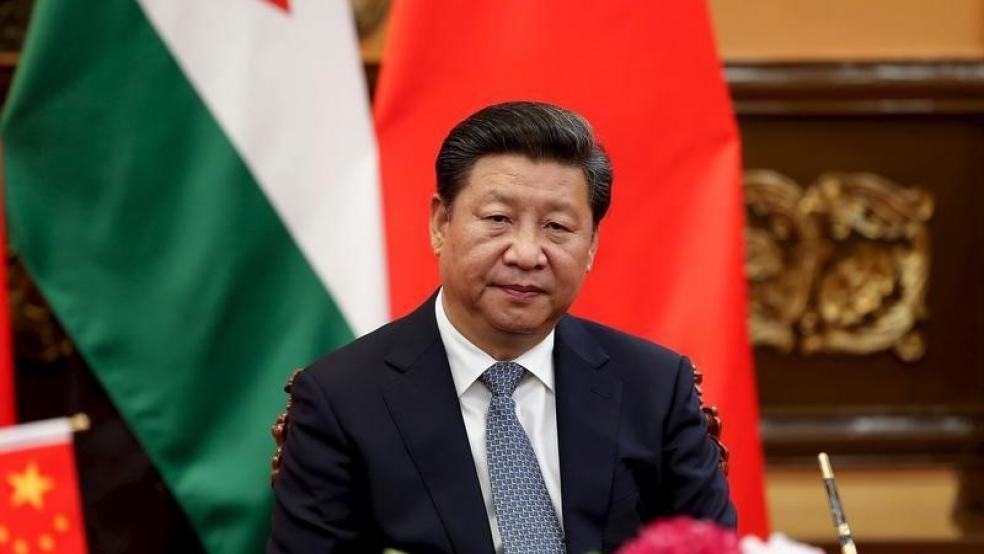Chinese President Xi Jinping arrives in Washington on Thursday for a visit that is unlikely to resemble the ornate spectacle that accompanied that of Pope Francis.
For starters, while His Holiness was greeted by the Obama family, and unprecedented media coverage when his airplane touched down at Andrews Air Force Base, Vice President Joe Biden and his wife will be on hand to receive Xi.
Related: Why U.S. Investors Shouldn’t Be So Worried About China
With the exception of addressing the United Nations for the first time, the Chinese president is not slated to preside over any major public events unlike Pope Francis who will have addressed thousands between a speech on the White House South Lawn, a handful of Catholic masses and an address to a joint meeting of Congress. Xi will meet with Congressional leaders, however, at a special reception Friday afternoon.
The White House will host a state dinner for Xi on Friday night, a courtesy the administration extended Japanese Prime Minister Shinzo Abe when he visited Washington earlier this year.
Though the optics of Xi’s visit might resemble those of previous heads of state, whether his stay is a success depends largely on whether and how far the Obama administration pushes him on key policy areas.
Whereas Republicans and Democrats found much to like – and dislike – about Francis on issues like climate change and immigration, President Obama has come under enormous pressure from both sides to confront the Chinese leader on a raft of national security topics, principally cybersecurity.
Related: China vs. Yellen: 3 Scenarios That Will Determine the Fate of the Global Economy
“Denying ourselves engagement with the Chinese would deny ourselves the ability to advance our interests and to make clear to China where we stand,” Deputy National Security Advisor for Strategic Communications Ben Rhodes told reporters on Tuesday.
He said the White House “won’t paper over those differences” on topics like hacking.
In recent years, U.S. officials have pointed the finger at Beijing privately and publicly for cyberattacks, including a major assault earlier this year when computers at the Office of Personnel Management were hacked and the fingerprints and data of 5.6 million federal workers were stolen.
Xi has denied that his government is responsible for the attack. In a speech in Seattle to tech and business leaders like Bill Gates earlier this week, the Chinese president said his country does not condone such activities and has often been a victim of cybercrime itself.
Related: 3 Major Lessons From the China Crisis That Wasn’t
To that end, The New York Times reported that U.S. and Chinese officials are negotiating an agreement that would set up rules of engagement for cyberwarfare. The accord could be announced as soon as Thursday and contain conditions like neither side will launch an online attack of each other’s critical infrastructure, such as power grids.
But cybersecurity isn’t the only area where long-simmering differences could boil over.
The administration has expressed deep concern with Beijing’s island-building campaign in the South China Sea. The activities have put allies in the region on edge and prompted questions about Obama’s commitment to his pivot, or “rebalance,” of U.S. military forces away from Europe and the Middle East and toward the Pacific.
In addition, last week a Chinese jet performed an "unsafe" maneuver in front of a U.S. reconnaissance plane, according to the Defense Department. The incident occurred on September 15 when the jet passed in front of an U.S. RC-135 aircraft operating above the Yellow Sea, said Pentagon spokesperson Peter Cook.
Senate Armed Services Committee chair John McCain (R-AZ), one of the administration’s toughest critics, said the “dangerous Chinese intercept of a U.S. aircraft last week shows that China feels emboldened to continue its pattern of aggressive behavior in the Asia-Pacific region.”




